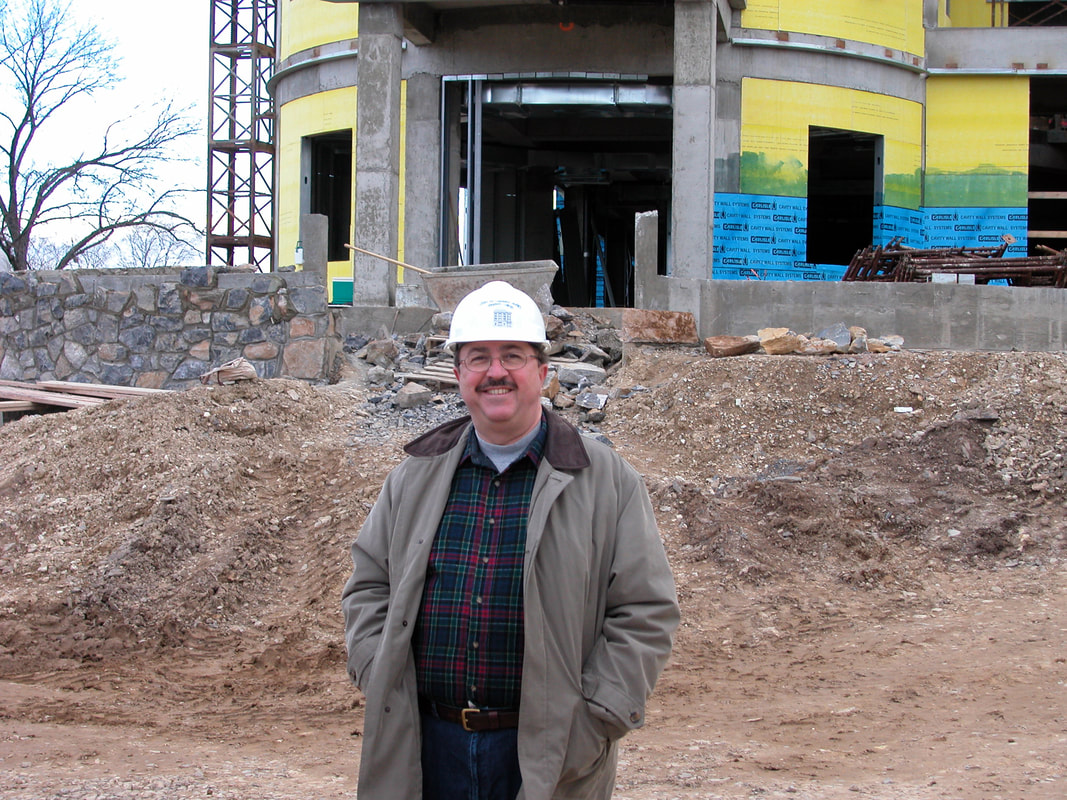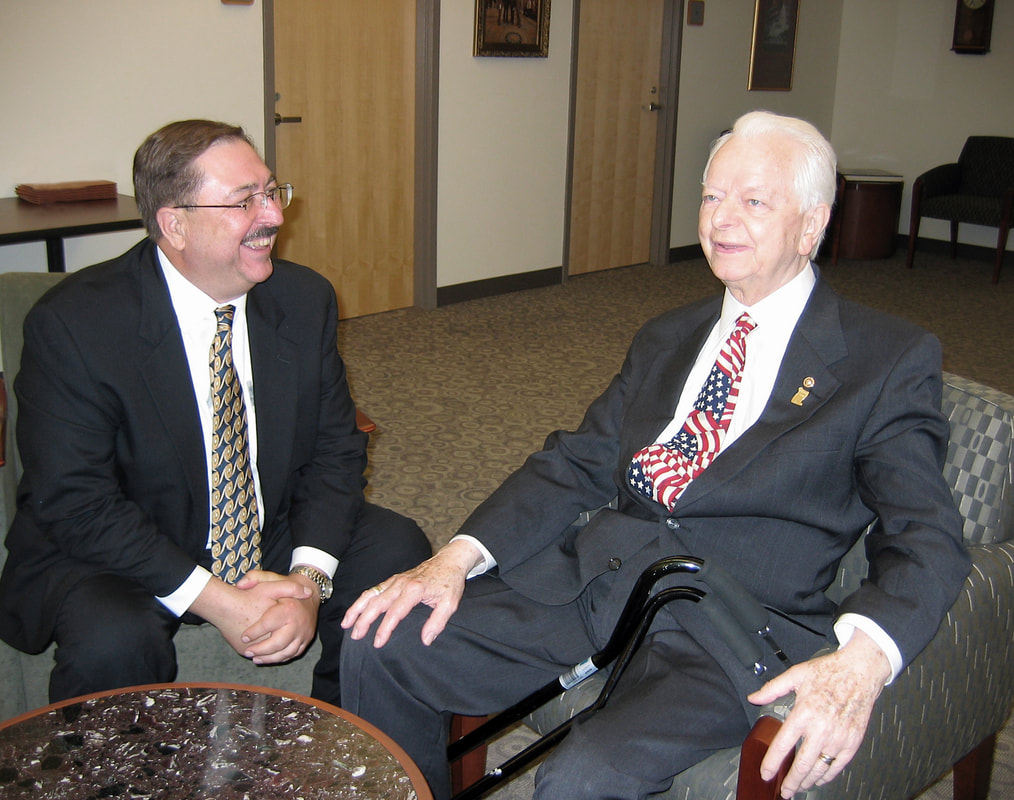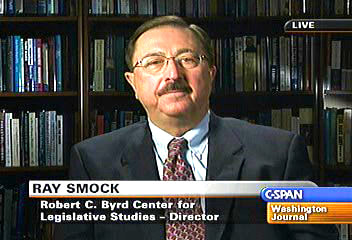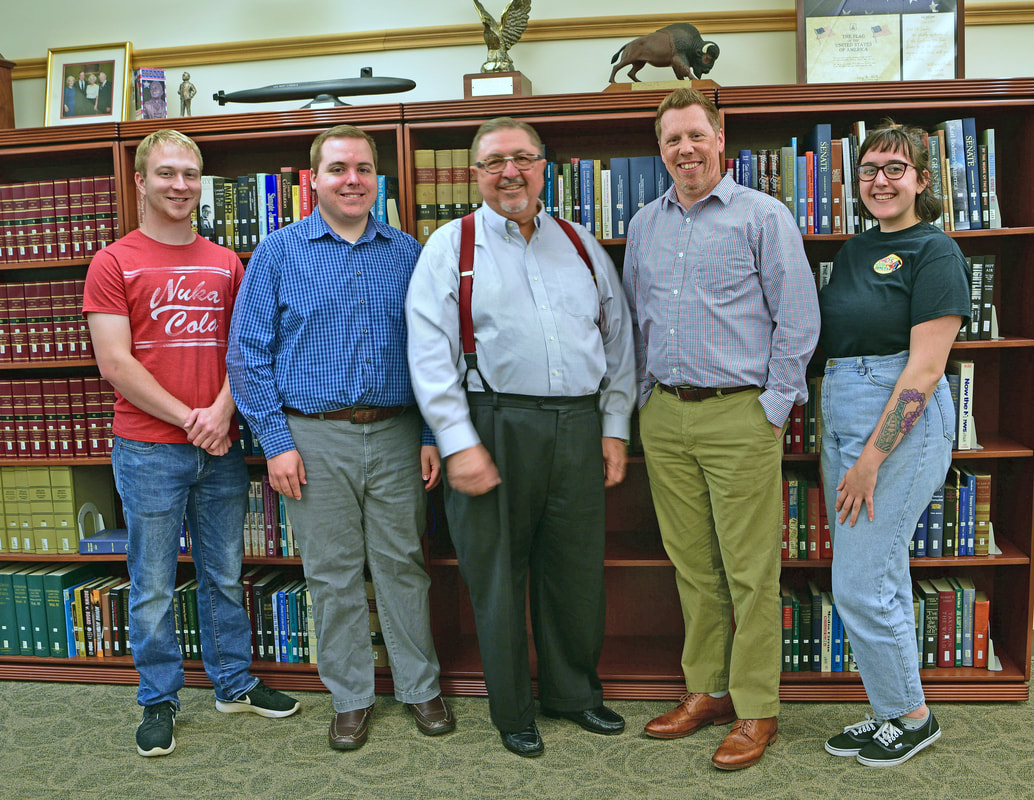|
By Ray Smock As I retire as Director of the Byrd Center for Congressional History and Education after sixteen years, I want to thank all the people who have made these years so satisfying, both professionally and personally. I cannot begin to name everyone. But it includes four presidents of Shepherd University, many fine administrators, and the outstanding faculty of this gem of a liberal arts university. And it includes the students of Shepherd too, those who have been in the classes I have taught over the years, but especially to those who have served as interns at the Byrd Center. I am proud of all of them. Many of our interns have said that their experiences working with the Byrd Center, helping us process Senator Byrd’s vast archive, learning how an archive really works, and being given important tasks to do, was one of their most rewarding experiences during their college years. My thanks extend to the members of the board of the Congressional Education Foundation, which oversees the work of the Byrd Center, for their many years of guidance and support. The Congressional Education Foundation preceded the creation of the Byrd Center. I worked as a consultant for this Foundation to help create the Byrd Center several years before I was hired to be the director. Helping to create the vision for the Center, working directly on this with Senator Byrd and his staff, and helping to oversee the design and construction of the Byrd Center and the expansion of the main campus library is one of the great highlights of my career, and I am grateful to have had this opportunity. The newest group that deserves special thanks is the Friends of the Byrd Center, a group of mostly local citizens in the Shepherdstown area, who have helped us with their donations and with their steadfast support of our public programs. Many in this group are also active in Shepherd University’s Lifelong Learning program. The Byrd Center partners with the Lifelong Learning Program and offers our classrooms and auditorium for their programs. I will not leave the Byrd Center behind, even as I step down from the director’s job. I will continue to serve as a member of the Congressional Education Foundation board of directors. The board voted to name me “Director Emeritus,” and I appreciate this honor. I will always find ways to help the Byrd Center because I believe in its mission and I believe it is an important center for public outreach at Shepherd University. The mission of the Byrd Center is to advance representative democracy by promoting a better understanding of the United States Congress and the Constitution through programs and research that engage citizens. Nothing could be more important to the life of this Republic. We carry on a vision planted with the Founders of this nation that citizens must be informed in order for democracy to work. It was James Madison who said “A popular Government, without popular information, or the means of acquiring it, is but a Prologue to a Farce or a Tragedy; or, perhaps both. Knowledge will forever govern ignorance: And a people who mean to be their own Governors, must arm themselves with the power which knowledge gives.” Citizens need to know what government is doing and what it should be doing under the Constitution. One center like ours cannot do this alone, of course. It takes many institutions both public and private, and it takes a free press, and good public education to make this happen. Here at the Byrd Center we helped form a national consortium of centers like ours to pool our collective approaches to public understanding of Congress and the Constitution. It is called the Association of Centers for the Study of Congress, with fifty members, mostly on university campuses, across the nation. Government is not functioning well right now. Very few citizens who follow our government closely like what they see. This goes beyond political party labels. The problem has been growing for a number of years. I met in Washington, DC recently with an organization called No Labels, which is working to end the ideological gridlock and hyper-partisan politics that plagues our politics right now. I met with members of the House of Representatives who are Republicans and Democrats working for ways to learn how to cooperate together and to not be afraid any longer of the word “Compromise,” which is the essential ingredient in the art of politics. I found this an encouraging development, but it still has a long way to go before Congress can function to do the work of the people, the work of the nation, and not the work of hardline party politics driven by big money.
The word “Education” in our new name means public education of all citizens, from grade schools, high schools, right through to senior citizenship. But we give education a special emphasis on teacher training so that future generations can use knowledge, not ignorance, to become better citizens and better future governors of the nation. We too easily forget that in a republic like ours, “We the People,” are the ultimate power. We do not work for government; government works for us—all of us. Public service is a noble calling. Politics is a vital process to sustaining the nation and civilization itself. Right now we seem to have forgotten both.
The Byrd Center needs your help. Its funds used to come from government grants, but we can no longer rely on such support entirely. We continue to seek grants for our educational programs, and we have been fortunate to receive a few for our teacher training program. But we suffer from the general downturn of support for educational institutions and we need substantial new resources in the years ahead if our work is to survive and flourish. With your help we can carry on this important work. Join the Friends of the Byrd Center; help us build a donor base among those who understand the importance of public education about what good government and good citizenship means to the life of the nation. I am happy to pass the torch of leadership of this Center to my friend and colleague Dr. Jay Wyatt, who becomes the new director on July 1, 2018. Jay has been at the Byrd Center as Director of Programs and Research for five years. I have every confidence that he will take the Center to new levels of achievement. He will be ably assisted by Jody Brumage, the Byrd Center’s Archivist and Office Manager, who is much admired on this campus for his professionalism, his organizational skills, and his ability to be helpful to everyone. And to our current and future Byrd Center student interns, please know how much we value your contributions to the work of the Center. Comments are closed.
|
Welcome to the Byrd Center Blog! We share content here including research from our archival collections, articles from our director, and information on upcoming events.
Categories
All
Archives
July 2023
|
Our Mission: |
The Byrd Center advances representative democracy by promoting a better understanding of the United States Congress and the Constitution through programs and research that engage citizens.
|
Copyright © Robert C. Byrd Center for Congressional History and Education
|





 RSS Feed
RSS Feed
